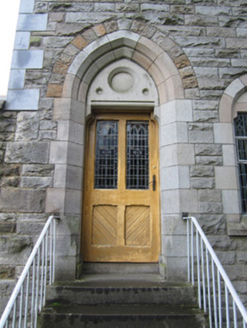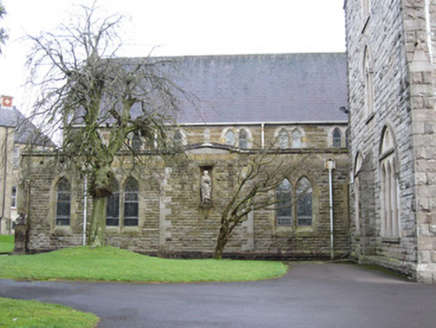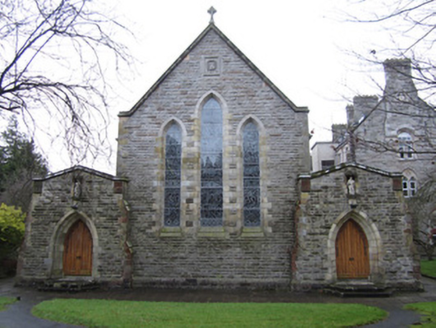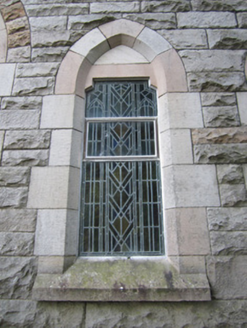Survey Data
Reg No
41303154
Rating
Regional
Categories of Special Interest
Architectural, Artistic, Social
Original Use
Church/chapel
In Use As
Church/chapel
Date
1900 - 1910
Coordinates
266962, 333425
Date Recorded
02/12/2011
Date Updated
--/--/--
Description
Attached gable-fronted multiple-bay Roman Catholic chapel with side aisles, built c.1909, and part of Saint Louis Convent. Extended to north-west 1933-8. Entrances to slightly projecting ends of side aisles. Pitched slate roofs throughout, with terracotta ridge tiles, cut-stone copings, Celtic cross finials to gables, and cast-iron rainwater goods. Rock-faced coursed limestone masonry over chamfered plinth, with ashlar sandstone quoins. Sculpted plaque to apex of entrance elevation. Ruled-and-lined render to south-west gable. Lancet window openings with chamfered ashlar surrounds and sills, and stained-glass windows. Pointed-arch door openings to front, north-west, gable, each with moulded stone surround and double-leaf timber battened door, fronted by two stone steps, and having square-headed niche over each doorway, with sculpted statues. Similar niche and statue to slightly projecting middle bay of south-west side aisle. Pointed-arch doorway to south-east elevation serving sacristy, having chamfered surround, shouldered square-headed doorway with tympanum having roundels, timber panelled door with stained glass to upper panels, flanked by window having similar surround and typmpanum and stained glass, approached by flight of steps with wrought-iron railings. Main convent buildings, of similar style and date, to south-west.
Appraisal
This attractive chapel building was built in 1909 to a design by J.J. McDonnell, and extended in 1933-8 to a design by T.J. Cullen. It has a simple pared-back aesthetic and embraces the Gothic Revival Style characteristic of institutional buildings in Ireland in the early years of the twentieth century. The building derives social interest from its religious and educational function, as a centre for not only the convent community but also the wider Monaghan Catholic community. Historical significance is added by its being part of the Saint Louis Convent, the order having created an important chapter in the socio-historical development of Monaghan Town.







